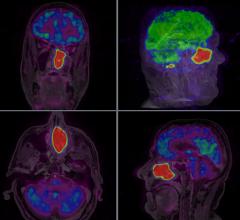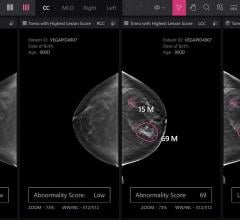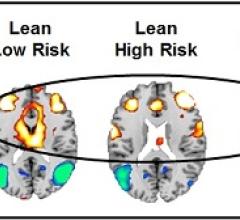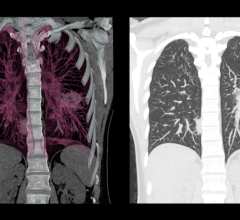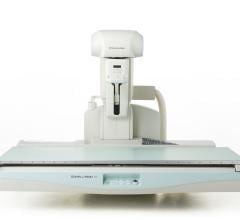Covenant Medical Center in Waterloo, Iowa, recently purchased and installed two Carestream Touch Prime XE Ultrasound Systems to capture radiology, OB/GYN, vascular, pediatric and interventional imaging studies. Covenant Medical Center is a 366-bed, full-service, multi-specialty hospital. A third Touch Prime Ultrasound XE system is deployed at Mercy Hospital, an affiliated critical access hospital in Oelwein, Iowa.
August 30, 2017 — ARTMS Products Inc. signed a strategic partnership with GE Healthcare around ARTMS’ proprietary ...
iCAD Inc. announced that the company’s Xoft Axxent balloon applicators have received approval from the China Food & Drug Administration (CFDA) for the treatment of early-stage breast cancer. The Xoft Axxent balloon applicators are a key component of the Xoft Axxent Electronic Brachytherapy (eBx) System, which is used to perform intraoperative radiation therapy (IORT) in early-stage breast cancer patients who meet specific selection criteria.
Radiology departments have many different needs and face a wide variety of challenges that can impact their departments ...
August 30, 2017 — This is a list of the top breast imaging content so far for 2017. These articles and videos highlight ...
Radioembolization is a therapy method used for liver tumors that are uncurable with surgery or chemotherapy. Thorough development of an individual plan is important for successful treatment. Within the SIRTOP project, the Fraunhofer Institute for Medical Image Computing MEVIS in Bremen, Germany, is developing sophisticated computer algorithms to make therapy planning faster and more precise. The research team will present their initial results at several upcoming conferences.
August 29, 2017 — The European Medicines Agency (EMA) issued a final opinion that recommended restricting the use of ...
Despite decades of progress in breast imaging, one challenge continues to test even the most skilled radiologists ...
A team of researchers recently used functional magnetic resonance imaging (fMRI) to investigate neural responses to food cues in overweight compared with lean adolescents. The team, including senior investigator Bradley Peterson, M.D., director of the Institute for the Developing Mind at Children’s Hospital Los Angeles, observed that food stimuli activated regions of the brain associated with reward and emotion in all groups. However, adolescents at an increasing risk for obesity had progressively less neural activity in circuits of the brain that support self-regulation and attention.
August 28, 2017 — Rayence Inc. announced the first multiple installations of a new Rayence cloud picture archiving and ...
20/20 GeneSystems Inc. recently released in China what is believed to be the world’s first machine learning algorithm commercialized for use in conjunction with blood tests to aid in the early detection of lung cancer. The cloud-accessible software, marketed in China by MyBioMed Ltd., is expected to be utilized over the next six months by at least 20 hospitals in five or more cities to help in distinguishing between benign versus malignant pulmonary nodules following computed tomography (CT) imaging.
Bayer Radiology’s Barbara Ruhland and Thom Kinst discuss how radiology departments can address the many different ...
August 28, 2017 — Philips Healthcare and HeartFlow Inc. announced they entered into a collaboration agreement to improve ...
To ensure you continue to receive information most critical to your job, please participate in a survey that will take only two to three minutes of your time. The survey will measure the readership and usefulness of the various healthcare industry publications and electronic newsletters or websites.
Prem Soman, M.D., director of nuclear cardiology at the Heart and Vascular Institute, University of Pittsburgh, and ...
eHealth Saskatchewan plays a vital role in providing IT services to patients, health care providers, and partners such ...
Randy Thompson, M.D., attending cardiologist, St. Luke’s Mid-America Heart Institute, Kansas City, explains protocols ...
Frost & Sullivan, a global market research and consulting company, has awarded Shimadzu Corp. the 2017 Global General Radiography Product Line Strategy Leadership Award. Frost & Sullivan presents this award to the diagnostic imaging company that has introduced products and services representing the highest leadership in the global market for diagnostic X-ray systems in 2016 and employs the best strategies for success. The award recognizes the innovations, versatility, and extent to which Shimadzu’s radiography product line meets customer needs, the overall impact Shimadzu has in terms of providing value, and its increased market share.
MR Solutions’ 9.4T cryogen-free magnetic resonance imaging (MRI) system is designed for preclinical applications. The cryogen-free (“dry”) magnet system provides high-resolution imaging within a compact footprint.
Kubtec announced that it has developed a unique solution to a potential problem faced by operating room (OR) staff when treating patients for breast cancer. Automatic Specimen Alert (ASA), now available on the Mozart System, Kubtec’s intraoperative 3-D tomosynthesis system, eliminates the possibility that OR professionals may forget to remove the excised specimen from the system once imaging is complete.
Merit Medical Systems Inc. will partner with internationally renowned interventional cardiologist Ferdinand Kiemeneij, M.D., Ph.D., to deliver the next generation in educational opportunities for interventional cardiologists and interventional radiologists.
Central Minnesota residents now have access to advanced computed tomography (CT) technology that is safe and fast at St. Cloud Hospital with the installation of the Aquilion One/Genesis Edition from Toshiba Medical, a Canon Group company. The system is located across a hallway from the emergency department and is being used for a wide range of exams, including neuro perfusion studies.
The Medical Device Innovation, Safety and Security Consortium (MDISS) recently launched the first of more than a dozen planned device security testing labs and cyber-ranges. The new MDISS World Health Information Security Testing Lab (WHISTL) facilities will comprise a federated network of medical device security testing labs, independently owned and operated by MDISS-member organizations including healthcare delivery organizations, medical device manufacturers, universities and technology companies. Each WHISTL facility will launch and operate under a shared set of standard operating procedures. The goal is to help organizations work together to more effectively address the public health challenges arising from cybersecurity issues emergent in complex, multi-vendor networks of medical devices.
Insightec announced recently that worldwide adoption of magnetic resonance (MR)-guided focused ultrasound continues to gain momentum as Exablate Neuro patient treatment numbers surpass the 1,000 mark. Medical facilities are ramping up their MR-guided focused ultrasound service and essential tremor patients are now being treated on a weekly basis at many sites, according to the company.


 August 30, 2017
August 30, 2017 
